Dutton will ‘cut Medicare off at the knees’: PM
Anthony Albanese has accused Peter Dutton of planning on ‘cutting bulk billing off at the knees’, as he ramps up his claims a Coalition government would dismantle Medicare after pledging $8.5bn for taxpayer-funded doctor visits.
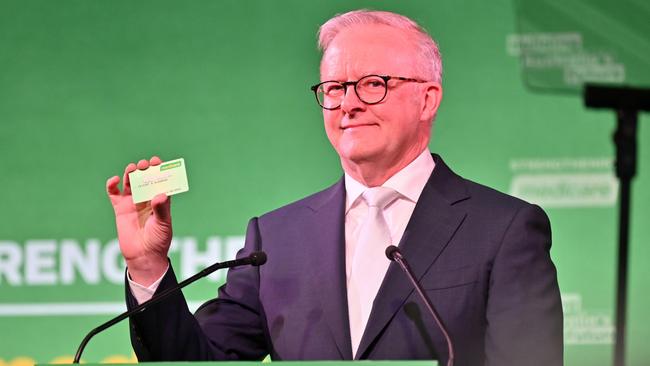
Anthony Albanese has accused Peter Dutton of planning on “cutting bulk billing off at the knees”, as he ramps up his claims a Coalition government would dismantle Medicare after pledging $8.5bn for taxpayer-funded doctor visits.
Speaking at a rally in the Tasmanian city of Launceston, the Prime Minister revived Labor’s 2016 Mediscare campaign by declaring a Dutton government would “break bulk billing and break the promise Medicare is built on”.
“They will strip Medicare of everything it means to people and all that matters to our country,” Mr Albanese said.
As he unveiled a plan for 90 per cent of GP visits to be fully covered by the taxpayer by 2030, Mr Albanese used Mr Dutton’s record as health minister in the Abbott government to claim it was only a re-elected Labor government that would protect Medicare.
“In 10 years, the Liberals turned bulk billing from a service you could count on, to something you have to search for. And that wasn’t an accident born of their neglect or their incompetence – it was their goal all along,” Mr Albanese said.
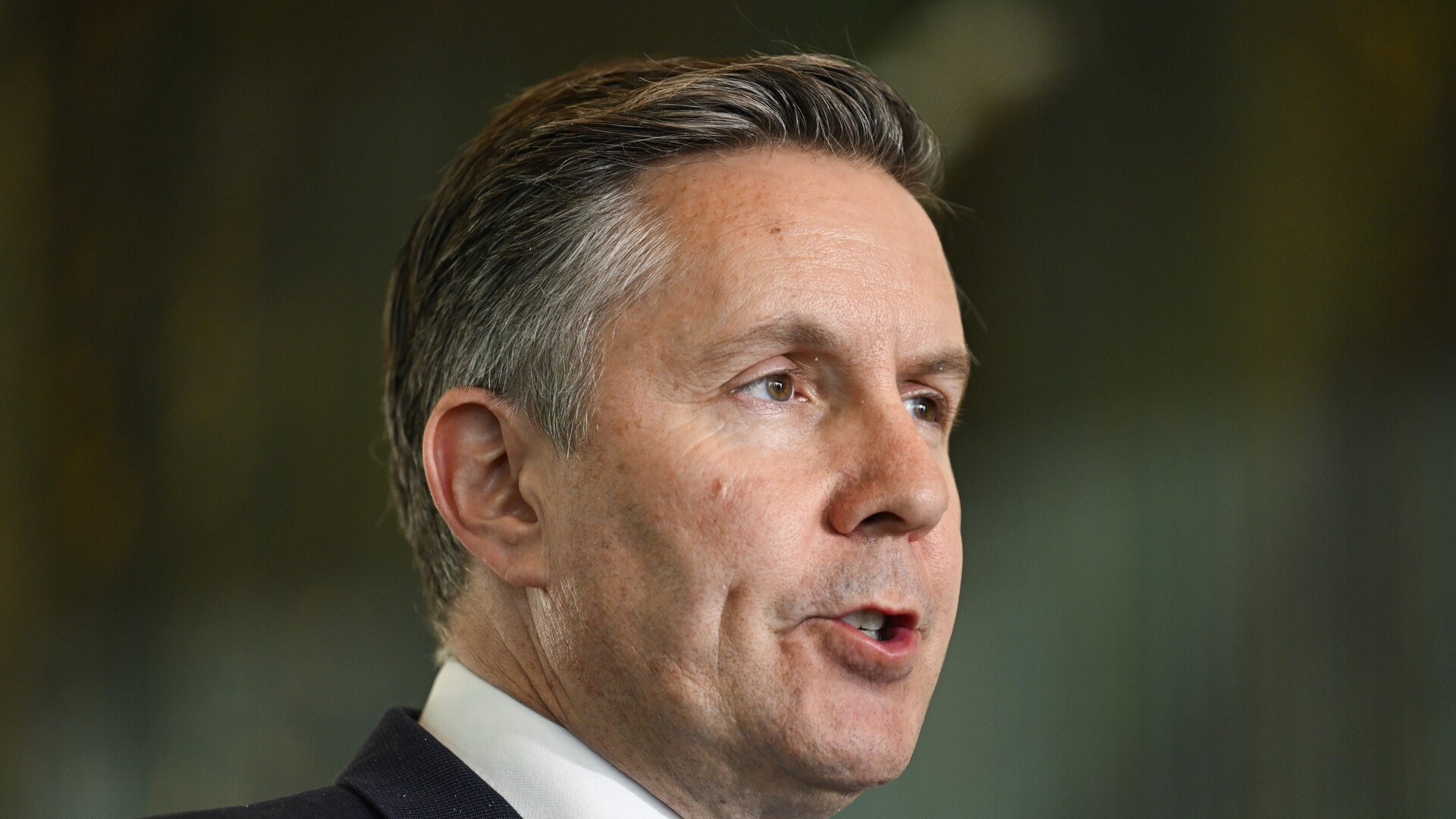
“It’s why Peter Dutton’s No.1 priority as health minister was a GP tax designed to destroy bulk billing altogether.
“He wanted to impose a medicine tax.
“A hospital tax on every Australian who had to seek care at an emergency department.
“And when he couldn’t get his way, he launched a six-year freeze on Medicare rebates for GPs that stripped away billions.
“Remember that, next time you hear the Liberals talk about getting ‘back on track’.”
Mr Albanese said the only thing that has changed about the Coalition since the 1980s was that they were no longer open about wanting to abolish Medicare.
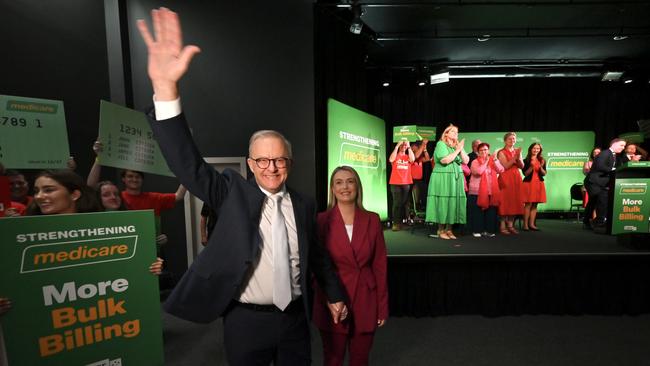
“Even Tony Abbott promised ‘no cuts to health’. But every time they get into government, their attacks on Medicare are always the same,” he said.
“The Liberals have changed what they say but they will never change who they are.
“When they talk about efficiencies, they mean cuts.
“When they talk about economic surgery, they mean cutting bulk billing off at the knees.”
The $8.5bn election pledge is aimed at making Medicare a key feature of the election campaign but it has not been accompanied by any revenue measures or spending offsets, in a move that worsens the structural budget deficit.
Jim Chalmers on Sunday said $5.4bn of the policy was provisioned in the budget under the “decisions taken but not yet announced” section, leaving the budget bottom line $3bn worse off over the forward estimates.
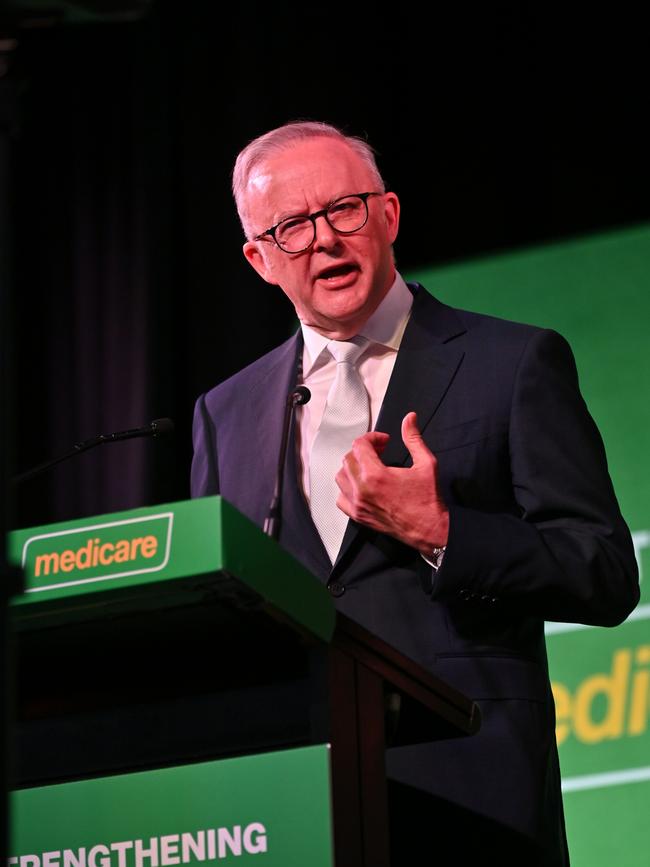
The policy is likely to become more expensive over the medium term, reaching $2.4bn by 2028-29 as the number of doctors bulk billing grows over time.
“We will have the best combination of budget improvements and investments like this,” the Treasurer told the ABC.
“The investment is substantial and responsible.”
Opposition Treasury spokesman Angus Taylor said a Coalition government would match the investment, claiming he would provide an explanation at a later date on how it would be funded.
“We’re not going to get in the way of Labor cleaning up the mess that it has made, and it’s important that mess be cleaned up,” Mr Taylor told Sky News.
The Prime Minister’s policy increases payments to doctors who provide taxpayer-funded consultations, encouraging GPs to bulk bill rather than charge their patients gap fees.
The policy will see an expansion of the bulk billing incentive so it for the first time applies to all Australians, while there will also be a 12.5 per cent loading payment for practices that exclusively bulk bill.
The bulk billing incentive – which was tripled by Labor in 2023 at a cost of $3.5bn – is currently a special top-up payment of between $21.35 and $41.10 to doctors who provide Medicare-funded consultations with pensioners, concession card holders and families with children.
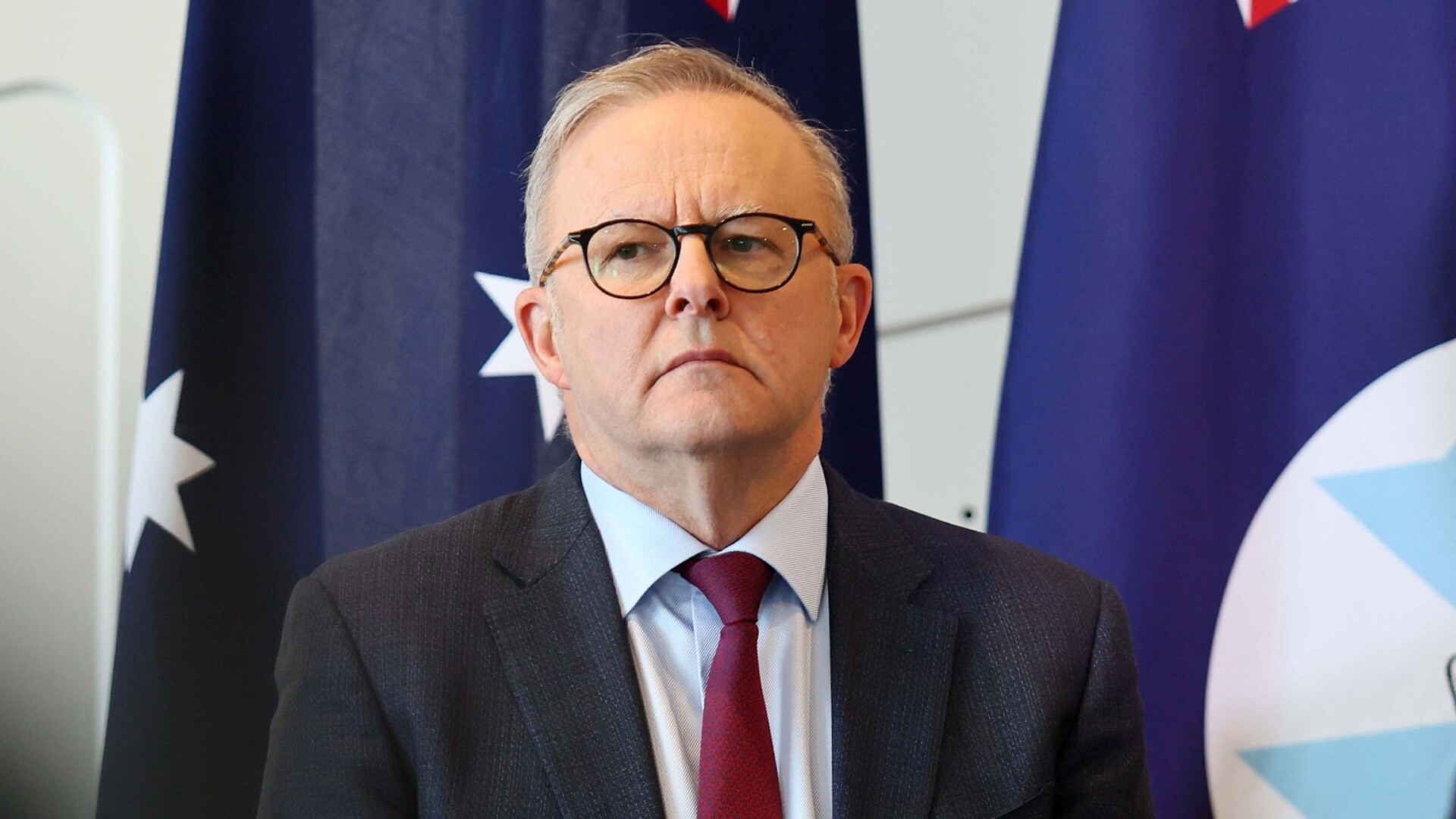
The government expects the policy, to begin in November, to deliver an extra 18 million taxpayer-funded GP visits a year, lifting the bulk billing rate from 77 per cent to 90 per cent by the end of the decade.
Labor is forecasting patients will save $859m a year on doctor visits by 2030, with the number of fully bulk billed practices to triple to 4800.
The policy will also include funding for the training of 2000 new GPs a year by 2028, as well as 400 nursing scholarships.
Under the funding increase, total payments to doctors who bulk bill could increase by 62 per cent for a standard consultation in a capital city, from $42.85 to $69.56.
This would increase to $80.71 for a consultation in a regional centre, $84.86 in a small rural town and $86.91 in a remote area – a boost of between 93 per cent and 103 per cent for doctors in the regions.
The government’s figures include the 12.5 per cent incentive for those in practices that exclusively bulk bill, which will not be the case for all.
The funding for GP visits is expected to take pressure off the hospital system, as the federal government remains in deadlock with state and territory governments over the next five-year hospital funding agreement.



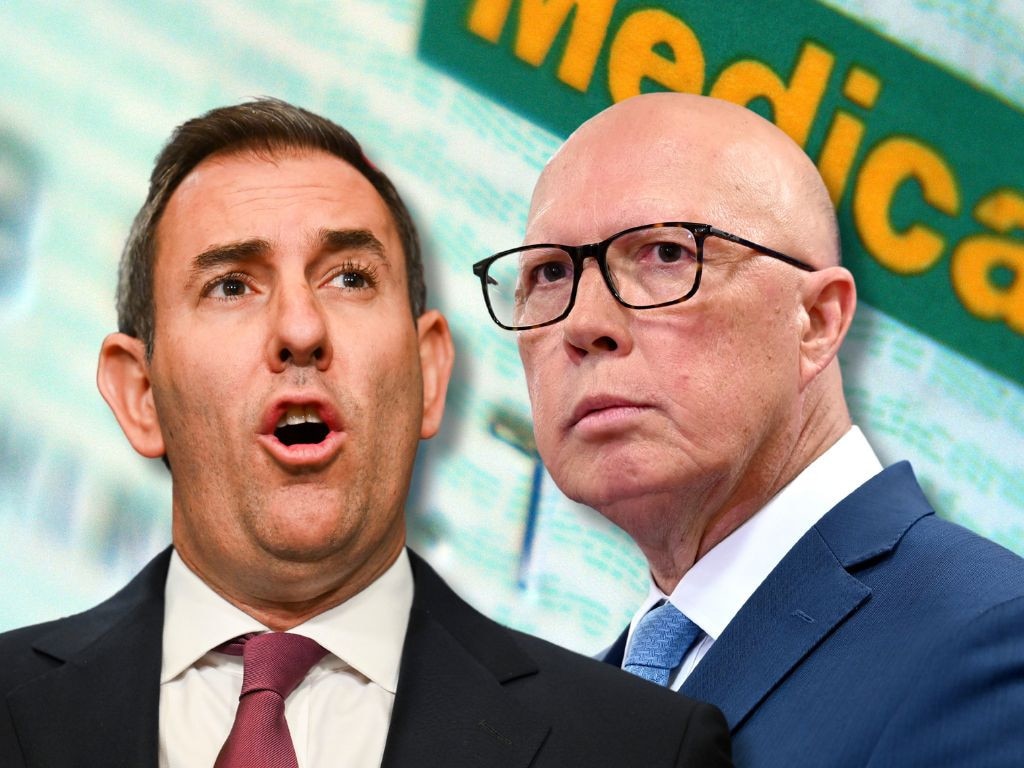
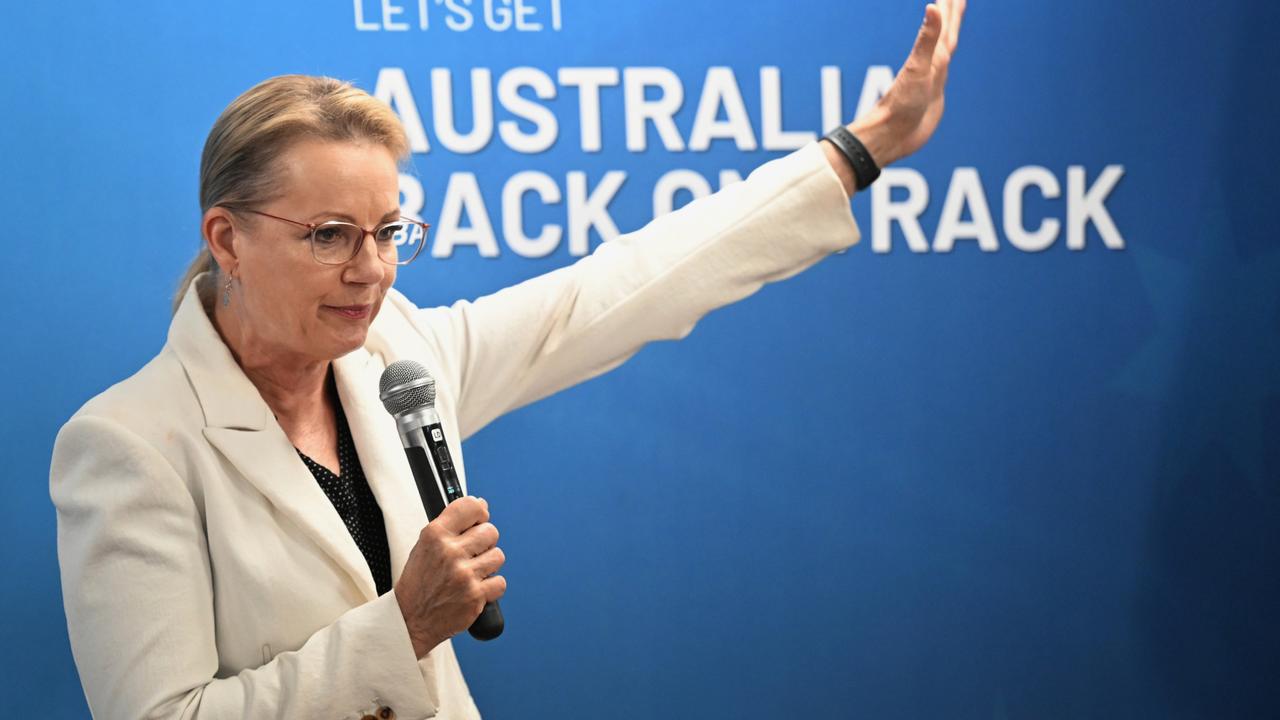
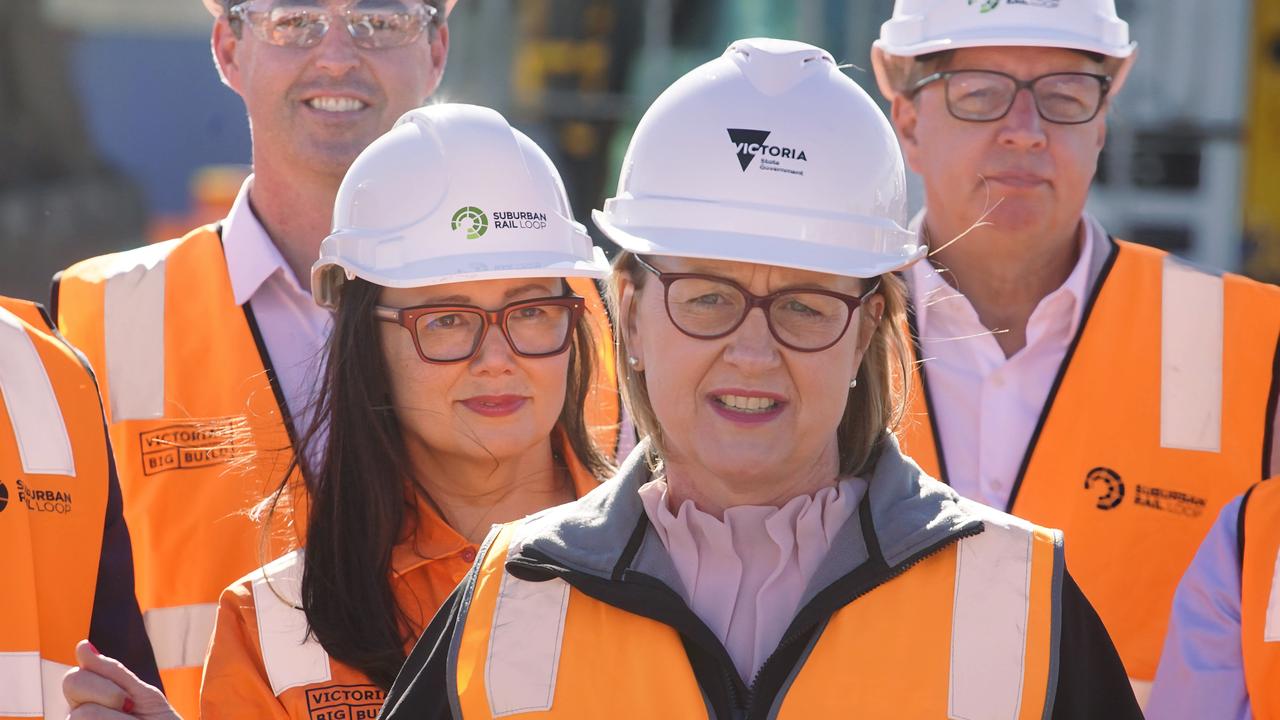
To join the conversation, please log in. Don't have an account? Register
Join the conversation, you are commenting as Logout